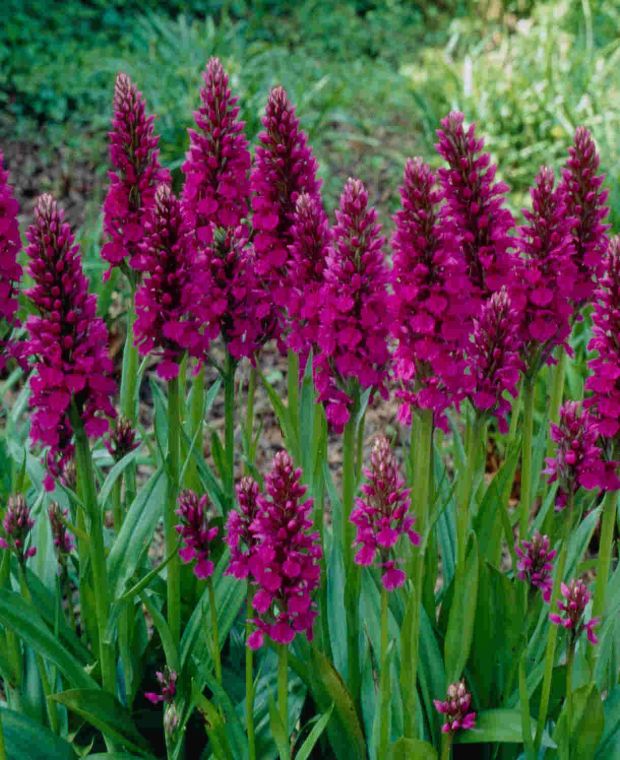Statuesque and colourful blooms appear in May on strong, tall stems and flower through until July. Foliage is held underneath in broad, sword-like clumps with eye-catching mottled marks and lasts from March to September. A true touch of the exotic from a rare and exciting garden orchid.In addition, these beauties have been grown ethically so you can be confident in the sourcing of these rare plants. Sadly, indiscriminate collecting has led to their near extinction in the wild and guaranteed sustainability is vital.Our advice is to grow Dactylorhiza majalis in a pot for at least the first year to allow plants to fully establish before planting out. They prefer a clay or loam-based soil which is moist, well-drained and humus rich soil. Plant in a spot with dappled shade (to emulate their natural environment). A hardy, deciduous perennial which will naturalise in the right conditions and provides a valuable source of sustenance to pollinators. H: 45cm S: 30cm.
When To Plant

Mar

Apr


May


Jun


Jul

Aug

Sep
 Planting Month
Planting Month
 Foliage Month
Foliage Month
 Flowering Month
Flowering Month




 Planting Month
Planting Month 